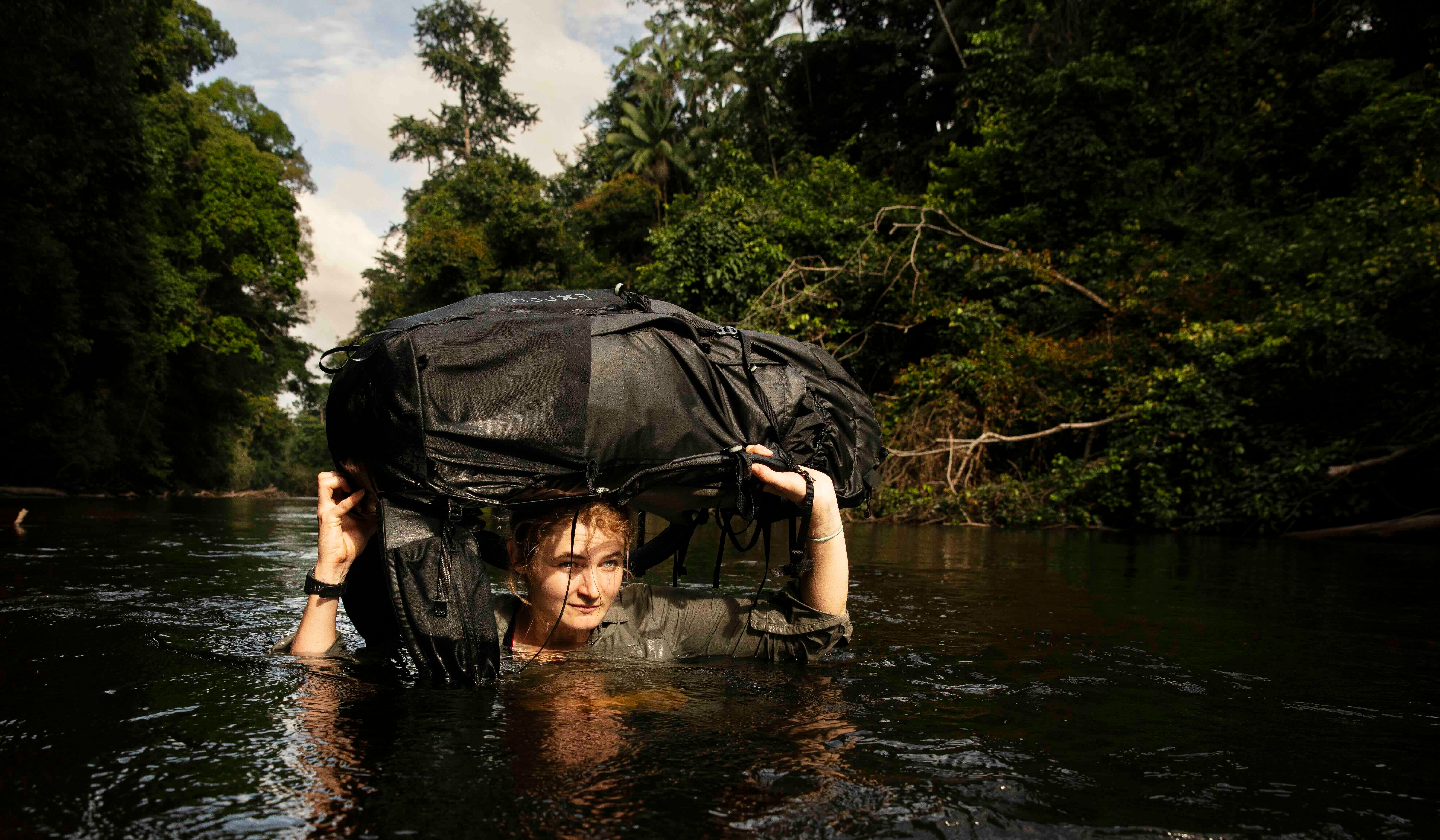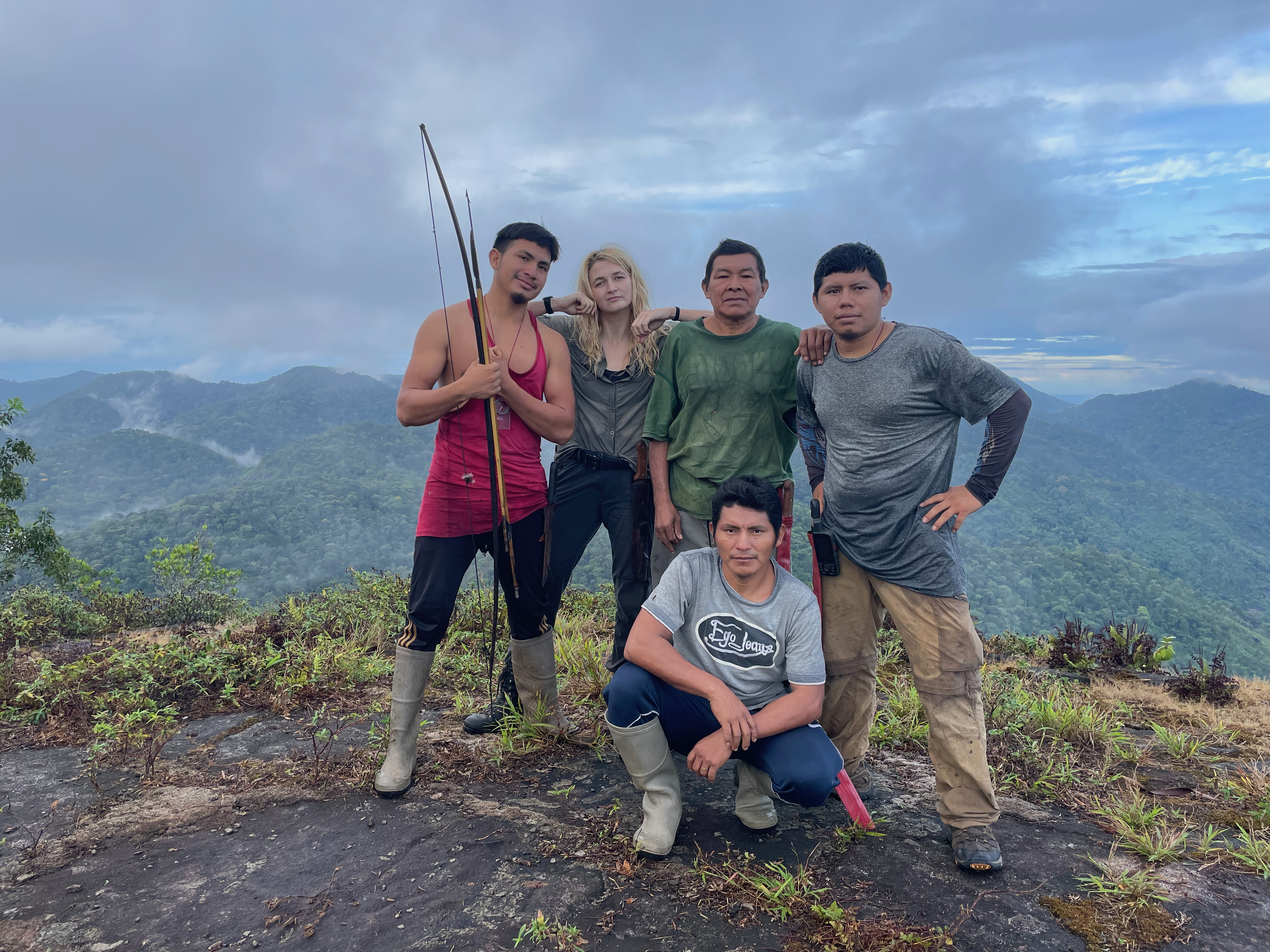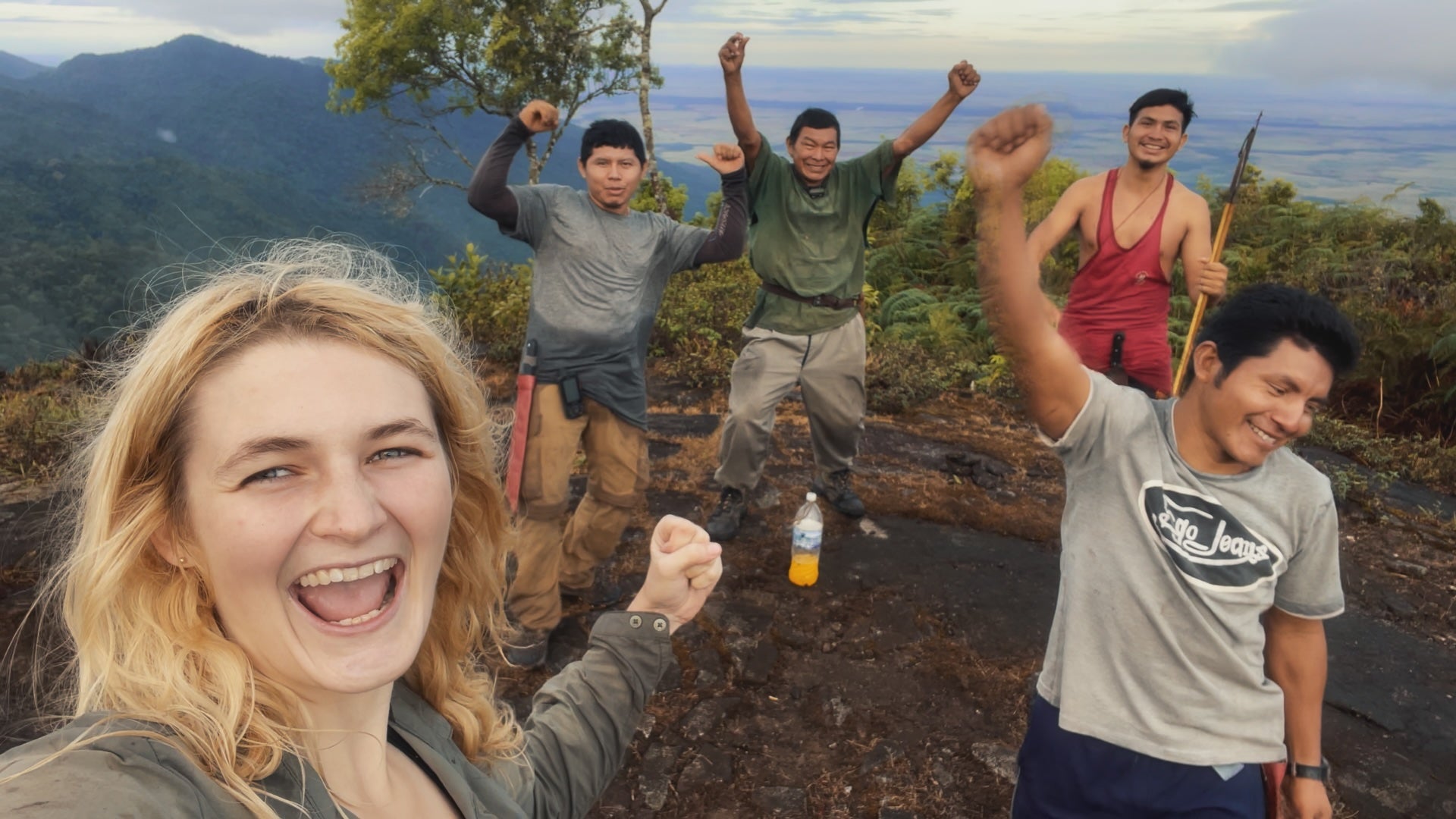
Your support helps us to tell the story
This election is still a dead heat, according to most polls. In a fight with such wafer-thin margins, we need reporters on the ground talking to the people Trump and Harris are courting. Your support allows us to keep sending journalists to the story.
The Independent is trusted by 27 million Americans from across the entire political spectrum every month. Unlike many other quality news outlets, we choose not to lock you out of our reporting and analysis with paywalls. But quality journalism must still be paid for.
Help us keep bring these critical stories to light. Your support makes all the difference.
Three weeks into her expedition through the Amazon rainforest, Lucy Shepherd feared her team was close to giving up.
Faced with dense jungle, practically zero sunlight, and the ever-present threat of deadly bushmaster snakes, jaguars and stampeding boar, progress was far slower than anticipated and morale was flagging.
Even Shepherd – who has led expeditions everywhere from Arctic plateaus to hostile deserts, and is known as one of the “most hardcore” British adventurers around today – was wondering whether this trek was one step too far, whether this expedition was simply not possible.
Along with her team of local Amarindian men, Shepherd had embarked on an unprecedented 50-day trek that would take her through uncharted terrain in one of the most remote places on earth, traversing almost the entire width of Guyana over the Kanuku mountains.

“It was so much more brutal than I could have ever imagined,” she tells me. “When we got to the first river – which ended up being about three weeks without seeing any real sunlight – I was sort of nervous that the team would just want to get out of there.”
This part of the rainforest is feared by locals, shrouded in myths and legends of jungle spirits. It’s a piece of the planet totally untouched by humans – before the team set off, locals warned them: “Don’t go; if you go you will never come back.”
Read more: The expedition encouraging more women into adventure travel
When I ask Shepherd about the risks, the list goes on: falling trees, swarms of wasps, spiders the size of dinner plates, 500-strong herds of aggressive peccary (wild boar), black caimans lurking in the waterways, the danger of trench foot, exhaustion, lack of food, and the sheer physical toll such a journey can take on the body.
Perhaps most terrifying of all are the bushmasters. These 12-foot-long venomous snakes move along the forest floor and are often first identified by the chill-inducing whistle they emit.
“Everyone thought we were completely crazy and would probably die doing it,” Lucy says.

But Shepherd and her team – Aaron Bernadine, Michael McDonald, Vivian Smith, Lionel James, Carlos Honorio and Maximus Griffth – were determined to complete the 400km trek through the rainforest, whether that meant scrambling, climbing or crawling through the dense undergrowth.
This was not just to prove that it could be done, but to showcase one of the most pristine wildernesses in the world and, crucially for Shepherd, to draw attention to the need to protect this fragile ecosystem and others like it.
Read more: Why storm watching should be on every adrenaline junkie’s bucket list
Shepherd filmed the expedition for the Channel 4 two-part series Secret Amazon:Into the Wild, and it’s hard not to be left in awe at the physical strength and mental resilience of the entire team.
Watching them slash their way through thick vines, bathe in muddy puddles and stay alert to venomous snakes as they rest in their hammocks, it’s unsurprising that Shepherd has been referred to as one of the “most hardcore” British adventurers. It’s a title she wears lightly, and when I ask Shepherd what means to her, she shrugs off any associations of being the first, the greatest and the best.
It’s about compassion and grit – and doing something because you believe in it.
"For me, it’s about compassion and grit and doing something because you believe in it,” she says. ‘It’s about leading gracefully.
“It’s understanding your weaknesses and vulnerabilities and sharing that with the team so that you will know what role you play. If I’m the leader, I need people to know what I can’t do. So then I can work out if anyone else can do it.
“If you start lying then you’re just going to trip up later down the line. It can be dangerous. There’s no room for egos at all.”
In fact, Shepherd seems completely devoid of ego. It’s refreshing; the world of exploration often feels macho and alpha, driven by desire to conquer the wilderness rather than work with it, which is something Shepherd has some strong opinions on.
Read more: How tourism can support Morocco’s High Atlas Moutains
“God, I hate that term ‘conquer’,” she says. “But it’s that language that is often used around exploration, which puts a lot of people off.”
She continues: “My whole message is we need to redefine the explorer. When we think of an explorer, the image of a 19th-century or Edwardian man with a big beard and woolly hat often comes to mind. But it doesn’t have to be like that.
“I think exploration is very much about perspective and mindset.”

Shepherd believes that anyone can be an explorer just by getting out in the natrual world. She says: “The word that comes to mind for me when I think about exploration is ‘connection’, and it comes in three forms.
“Firstly, it’s connection with yourself. We lose ourselves so easily nowadays with the distractions of modern day life. Most people don’t actually know who they really are. And for me, going to these places, it reminds me exactly who I am.
“Then it’s connection with each other. The relationships you build when on an expedition are just so raw. You get to know everyone’s flaws, but appreciate them, and you get to share the highs.”
The final form is perhaps the most obvious one: forefront of Shepherd’s mind on every expedition is connecting with the environment
“You realise we’re not superior in any way to the natural world,” she says. “We talk about nature as a separate entity, but we are nature.
“We are animals and part of this whole thing. And when you go to these places, you realise just how insignificant you are, but equally how special you are to live in such an amazing place.”
‘Secret Amazon: Into the Wild’ is available to stream on Channel 4 now.







